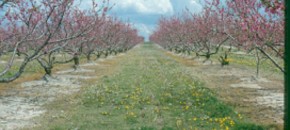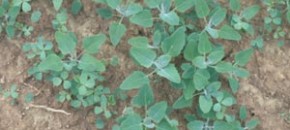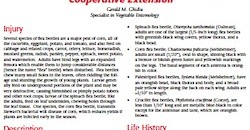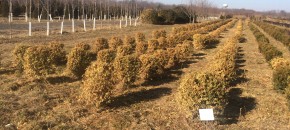The Sports Field Managers of New Jersey (SFMANJ) Spring Field Day covers topics such as the fertilizer law, weed control, irrigation, grasses, and field maintenance. Date: Tuesday, April 22, 2014 Location: South Delsea Park 152 South Delsea Drive, Glassboro, NJ Registration Flyer
Continue reading...Upcoming NJDEP Certification Exams:
2014 Locations & Dates
State Pesticide Applicator and Dealer Certification exams are administered by the New Jersey Department of Environmental Protection Pesticide Control Program (PCP). Find information about exam prerequisites and application on the Rutgers Cooperative Extension Pest Management Office website. The complete exam application must be received by the PCP at least 14 days before exam dates chosen. […]
Continue reading...Orchard Sod Weed Control

Managed sod row middles have many advantages, and have been adopted by many tree fruit growers. They provide a firm drive path for spring spraying of insecticides and fungicides, prevent or reduce soil erosion, and improve soil tilth by increasing soil organic matter. Broadleaf weeds in the sod should be controlled. Weeds are alternate hosts […]
Continue reading...Asparagus Weed Control

Maintaining an asparagus field weed free during the two month harvest season requires a planned herbicide application prior to spear emergence. Choose a postemergence herbicide or tillage to control emerged weeds, and residual herbicides to control annual grasses, and annual broadleaf weeds during harvest.
Continue reading...Flea Beetle: One of the First Pests of Spring

Flea beetles are one of the earliest vegetable pests to be seen in crop fields in spring. They attack many vegetable crops grown in New Jersey. Several species can be found throughout the year, including the cabbage flea beetle, corn flea beetle, crucifer flea beetle, horseradish flea beetle, eggplant flea beetle, palestriped flea beetle, potato […]
Continue reading...Frosty Finally Melted Part 2

Despite a winter that tormented us, most plants did pretty well in the snow. While there was plenty of mechanical damage from several heavy snow storms, the snow accumulation actually protected many plants. Snow cover helped to prevent winter desiccation, particularly in plants lucky enough to have been buried, like turfgrass. It also kept the ground in […]
Continue reading...